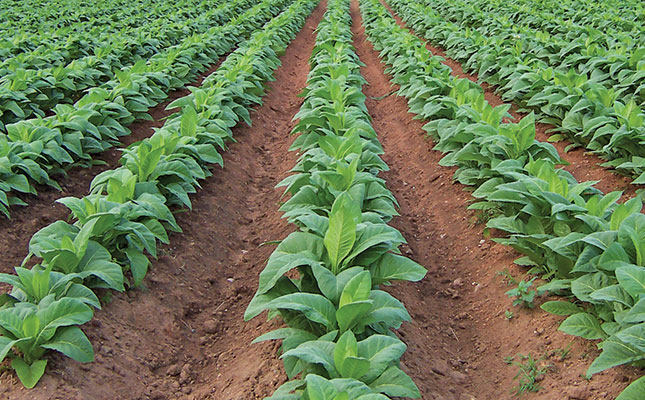The agriculture sector is projected to grow by a modest 5.1% in 2022, attributable to expected favourable rainfall season and implementation of government support programmes, Finance and Economic Development Minister Mthuli Ncube has said.
The livestock sub-sector is also expected to remain buoyant in support of this growth, on the back of good pastures and water availability.
Presenting the 2022 National Budget statement, Thursday, Ncube said the thrust under the 2022 National Budget is to surpass the 2021 production levels through implementation of the key tenets of the Agriculture Recovery Plan (2020-23).
“The 2020/2021 agriculture season output was remarkable, benefiting from good rains and timely preparedness, especially in terms of financing and the provision of inputs. Government, in conjunction with development partners supported vulnerable household farmers with agricultural inputs, while the banking sector provided loan financing to commercial farmers. These support initiatives were complemented by contract farming arrangements and own farmer resources,” said Ncube.
Resultantly, the country witnessed a bumper harvest of over 3 million tonnes of grain, to give an overall growth of the sector at 36.2% in 2021.
“Based on the current agriculture financing model, government will finance the Agriculture Productive Social Protection Scheme for crops and livestock (which targets vulnerable households) while banks will fund commercial farming activities, through the National Enhanced Agriculture Productivity Scheme (NEAPS), with government only providing guarantees on a risk sharing basis,” said Ncube.
He said the an allocation of ZWL$124 billion to Ministry of Lands, Agriculture, Fisheries, Water and Rural Resettlement is provided under this Budget, targeted towards the following interventions:
• Grain production;
• Horticulture;
• Business Advisory and Extension Services;
• Agriculture Research and Colleges;
• Animal Disease Prevention & Control;
• Agricultural Engineering and Mechanisation;
• Water and sanitation;
• Irrigation development; and
• Rural Development.
Grain
The growing of traditional grains in the dry regions of the country will be promoted as a mitigation measure to climate change and to diversification of food production and consumption away from maize in order to promote nutritious foods.
In this regard, allocation under the Agriculture Productive Social Protection Scheme of ZWL$18 billion, government is targeting to support 540 000 vulnerable households with 5kg of sorghum seed and 260 000 households with 2kg of millet seed under the Pfumvudza/Intwasa Programme.
Horticulture
Horticulture has the advantage of allowing all year production and historically, the sector generated significant amounts of foreign exchange, which at one point was the second largest foreign exchange earner, after tobacco. Given its potential, horticulture could be one of the key drivers of the Zimbabwean economy in terms of foreign currency generation.
The major challenge currently facing the horticulture industry is lack of access to appropriately structured and sustainable financing mechanisms, compounded by the shortage of foreign currency to import critical inputs which limits the capacity for horticulture seed production and poor internal cold chain management.
Cognisant of these challenges, government is setting up a Horticulture Export Revolving Fund (HERF) that will support respective beneficiaries with foreign currency requirements geared towards horticulture export production.
The facility will be accessed through the normal banking channels, and in line with the risk sharing model, banking institutions shall undertake due diligence, monitoring and evaluation of use of resources whilst government provides the necessary guarantees.
In this regard, government will utilise part of the SDRs to support horticulture inclusive of irrigation and the 2022 National Budget has allocated US$30 million for reviving the horticulture sub-sector.
Business Advisory and Extension Services
Provision of adequate extensions services to farmers is at the core of interventions towards promoting agriculture productivity and production.
While deliberate efforts have been made to capacitate our extension officers, further interventions are still required to enable the officers increase the scope and coverage of their services.
The 2022 National Budget has, therefore, set aside ZWL$970 million towards the provision of housing and essential tools of trade, covering motor-cycles, vehicles and equipment.
Furthermore, government is exploring options of issuing the recently availed motorbikes as part of conditions of service for extension workers under a personal issue arrangement in order to ensure ownership, accountability and responsible use.
